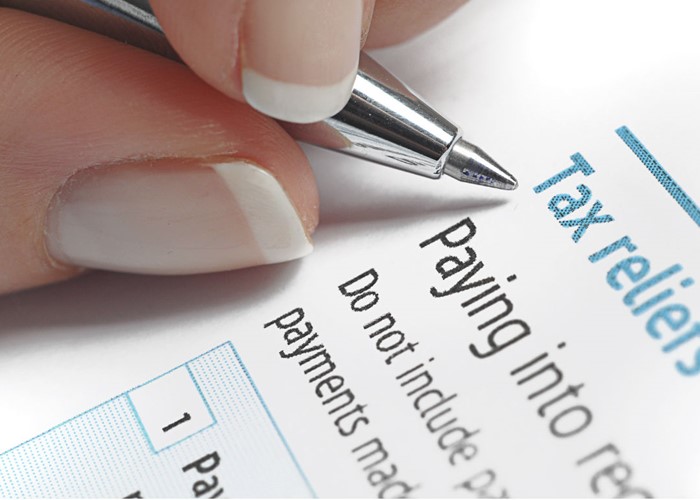Why the money we owe the taxman has jumped ‒ and what it might do about it

The taxman is missing out on billions of pounds that it's owed every year, so what new strategies can we expect? John Fitzsimons investigates.
New data from HM Revenue & Customs has revealed that the gap between the amount of tax owed and the money the taxman brought in last year has grown.
For 2017-18, the overall underpaid tax figure grew to £35 billion from last year’s figure of £33 billion.
That’s the equivalent of around 5.6% of all of the expected tax revenue that isn’t actually making it into HMRC’s coffers.
Why the taxman is increasingly dipping into our bank accounts
The missing money
In its data, the taxman breaks down precisely who is responsible for that missing money, as well as why it may have slipped through the net.
For example, around £14 billion of the underpaid tax is down to small businesses.
This may tie into the top ‘behaviour’ reason for underpayment, which HMRC classes as ‘failure to take reasonable care’ with tax returns, which it reckons has led to an underpayment of £6.4 billion.
Couple that with the £3.4 billion lost due to simple errors, and it’s clear that there are plenty of self-employed workers and small businesses that are paying less tax than they really should due to mistakes on their tax returns.
With a further £6.2 billion lost due to ‘legal interpretation’ ‒ think of those cases where HMRC has clashed with TV personalities over whether they are really being themselves or representing a character on screen, for example ‒ and the taxman is also being left out of pocket due to the sheer complexities of the current tax setup.
This is at least in part the taxman’s own fault, according to James Hender, head of private wealth at Saffery Champness, who warned that the “burden of tax compliance” has increasingly shifted on to the taxpayer in recent years, but as there is a “general shortfall in tax knowledge” this is leading to innocent areas and misinterpretation.
The criminals
However, it’s not just businesses and individuals making a hash of their tax returns that has led to such massive sums failing to make their way into the taxman’s coffers.
According to HMRC, around £4.9 billion of the underpaid tax is the result of the work of criminals and criminal attacks.
On top of this, a further £5.3 billion is lost due to tax evasion.
George Bull, a senior tax partner at accountants RSM, said these figures seem “intractably high”, noting that skipping out on paying owed tax is not a victimless crime as it directly results in cuts to public services.
He added: “By some measures, the age of austerity has cost households more than £270 billion over the last decade. This could have been halved had the tax lost to illegal behaviours been eliminated.”
Plan for your retirement by viewing your investing options on loveMONEY (capital at risk)
More resources needed?
So how will the taxman tackle this underpayment of tax?
It has already been granted new powers in the last few years, which it has shown it’s more than willing to use.
These have included taking money directly from the salaries of workers, or by making greater use of private debt collectors.
It led to accountants UHY Hacker Young declaring that HMRC was adopting an “increasingly aggressive approach”, and with underpayment now increasing, we are likely to see that continue.
Bull noted that HMRC has achieved “notable successes” in reducing the tax gap in certain areas, such as VAT, which he said demonstrated “that with the right legislative action and committed resource, HMRC can be highly effective”.
Bull added that, while there will be calls for the taxman to get more resources, it may need to be “a case of HMRC working smarter not harder”.
But it’s still important to remember that over the last decade or so, HMRC has been the subject of significant budget cuts from the Government.
It is asking an awful lot of the taxman to be more effective in cracking down on tax avoidance, cutting down on money lost to criminals, and ensure that taxpayers are sufficiently well versed in how to do their tax returns properly, while also removing the funds at their disposal.
If we want to reduce the amount of underpaid tax, it makes sense to have a properly-resourced taxman.
Plan for your retirement by viewing your investing options on loveMONEY (capital at risk)
Moving in the right direction
Nonetheless, it’s worth remembering that, over the longer term, the amount of underpaid tax as a percentage of overall receipts is heading in the right direction.
For example, back in 2005-6, around 7.2% of the tax due didn’t actually reach HMRC.
Over the last year, the unpaid tax only increased by 0.3%, which is obviously disappointing, but still represents a significant improvement on the situation a little more than a decade ago.
Comments
Be the first to comment
Do you want to comment on this article? You need to be signed in for this feature
